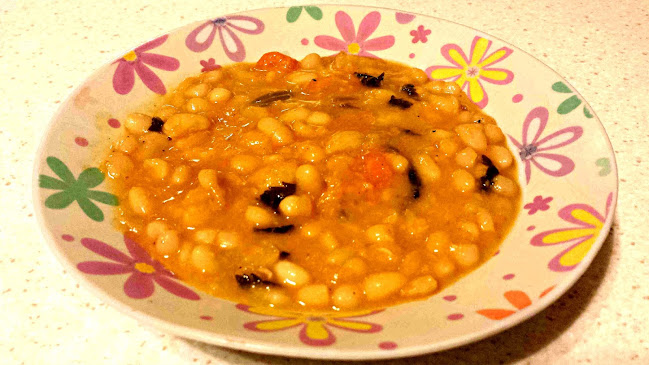In the realm of Greek cuisine, fasolada stands tall as a symbol of tradition, flavor, and nutrition. This hearty bean soup, packed with protein, fiber, and iron, is often considered the national food of Greece. While Greek cuisine is renowned for dishes like moussaka, souvlaki, and tzatziki, it is the humble fasolada that has nourished generations of Greeks, gracing family tables at least once a week. Let's delve into the history, nutritional benefits, and preparation of fasolada, a soup with deep roots in Greek culture.
The roots of fasolada stretch back to ancient Greece, possibly related to an ancient dish composed of broad beans, vegetables, and grains—a dish that contained no meat and was used as both sustenance and a sacrificial offering to the Greek God Apollo during the Pyanopsia festival.
Legend has it that Theseus, the hero who ventured to Crete to confront the Minotaur, stopped at Delos and offered sacrifices to Apollo. He pledged to offer decorated olive branches to the god if he triumphed over the Minotaur, a promise he fulfilled upon his return to Athens. After the long journey, the provisions on the boat had been depleted, prompting Theseus's companions to gather whatever ingredients they could find and prepare a bean soup on the seventh day of their return.
The term "Pyanopsia" itself signifies the "day of the bean soup," during which Athenians would prepare and offer fasolada to Apollo, the Sun, Athena, and the Hours.
According to the myth, this tradition was established by Theseus when he set out for Crete to kill the Minotaur. On the way to Crete, he stopped at Delos and while he sacrificed to Apollo, he promised him that if he won the battle with the Minotaur, he would offer him decorated olive branches to thank him. When he returned to Athens, Theseus fulfilled his promise with this tradition. On his return, the food on the boat was consumed. So, on the seventh day, Theseus's companions gathered what they could find and cooked them into a bean soup.
Actually, Pyanopsia means the “day of the bean soup”. Athenians were making fasolada and they were offering a plate to the god Apollo, the Sun, Athena, and the Hours.
The preparation of fasolada is a simple yet deeply satisfying process. After the overnight soak, the soup takes just 10 minutes to prepare and an additional hour to cook. This classic recipe serves approximately four individuals.
Fasolada's nutritional might lies in its protein, fiber, and iron content, making it an ideal choice for vegans and those seeking a nutrient-packed meal.
Fasolada – Ingredients
Creating a delicious pot of fasolada requires a handful of essential ingredients:
- 400g dry white beans
- 3 medium carrots, sliced
- 1 large onion, finely chopped
- 3 stalks of celery, finely chopped
- 50 ml of Greek olive oil
- 2 tbsp. tomato puree
- salt and freshly ground pepper
- fresh parsley for serving
Fasolada – How to Make
- Boil the beans in water for 30 minutes until they soften a little.
- Drain, reserve one cup of water, and set the beans aside.
- In a large saucepan, heat the olive oil and fry the onion for 2 minutes.
- Add the celery and carrots and continue to fry for another 2 minutes.
- In the end, add the tomato paste and stir well to distribute evenly.
- Pour the beans into the pan and add gradually some of the reserved water until they are just covered.
- Stir lightly and bring to a boil, keeping a lid on.
- Simmer for about 30-35 minutes, until de beans become soft.
- Pour the remaining olive oil, stirring in gently.
- Season with salt and pepper and boil for another 5 minutes until the soup thickens.
